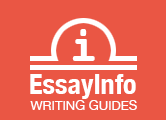Public Speaking. It's almost everybody's No. 1 fear, exceeding the fear of accidental death or dismemberment. Still, there's probably no better way to establish yourself as an expert or to gain visibility in an organization. You set yourself apart by speaking before groups, just because so many people are intimidated by the idea. But there really is no need to be; you simply need the tools to do the job right. For example, focusing on communicating clearly instead of on trying to "wow 'em" often helps presenters to channel their energies constructively. What's the best defense against the fear of being laughed at? Rigorous research.
The seven pointers below offer sound advice that will help you deliver more effective presentations with greater confidence.
1. Your Audience Wants You To Do Well
An audience would rather be entertained than bored; they would rather see you do well than see you fail. Perhaps because they, too, have panicked before a group, people in an audience tend to identify with the presenter, putting out a kind of "wave of good will." All you have to do is surf that wave and you will have an enormous advantage over your fears.
2. Your Audience is a Collection of Individuals, Not a Monolithic Thing
The temptation to see your audience, as a nameless, faceless wall sets up a situation so intimidating that self-sabotage is practically assured. Fortunately, an audience is not one massive collective consciousness. Each person reacts differently to a presenter.
To help you see your audience as a group of individuals, make eye contact with individual members in the group. Direct individual eye contact neutralizes the audience's ability to intimidate you.
People who have no trouble speaking to one person can go to pieces talking to a group. It might be useful to view the presentation as a series of "simultaneous one-on-ones."
3. Direct Eye Contact Provides Both Reassurance and Needed Information
Making frequent direct eye contact with audience members lets them see that their attention matters to you. They will invariably repay this with like attention. Making real eye contact with the audience also lets the presenter see whether or not they understand the information being presented. If comprehension doesn't show in the eyes of the audience, the presenter can adjust the message. If the presenter avoids their eyes, the audience instantly senses fear. Their attention--and the presenter's credibility--evaporate.
4. Your Script is a Departure Point. You Are Only a Vessel for the Information You Are Delivering
If you memorize a script word-for-word and expect it to retain any feeling of real life, you--and your audience--will be disappointed. Audiences are impatient with memorized scripts. Memorization drains the life out of your presentation and prevents the audience from feeling like they know you. This feeling of "knowing you" is what makes an audience like and consequently trust you. If the audience likes and trusts you--which can happen only if they have a sense of the life passing through you--they will listen to you. A speech memorized word-for-word sends the message that you are not alive.
Having complete familiarity with and an emotional connection to your material puts your attention and energy where it belongs. Add the need to have the audience receive and understand your material, and you won't have time to think about what your hands are doing, whether or not the audience likes you or whether you've gotten a parking ticket during your presentation. You won't have any energy left to devote to the things that can rob you of the connection you're making with your material and your audience.
When a presentation goes particularly well, it is usually because the presenter is concentrating on the message and the audience. When the presenter's concentration is focused in this manner (that is, when the need to think about yourself has been taken away), presenting stops being a form of torture and becomes instead a means of creative expression.
5. Oxygen Deprivation Breeds Panic
This sounds like an over-simplification. It is not. People who can think on their feet continue to breathe as they present. Stopping your breath is a common fear response. The most common cause of "presenter panic," and the most controllable, is a lack of oxygen to the brain. As the brain becomes oxygen-starved it starts to shut down. Trying to pursue a train of thought and bring an audience along with you as your brain shuts down puts you at an enormous disadvantage. When the audience can see you breathing, it is a subtle reminder, though one they are unconscious of, that you are a human being. When you stop breathing, they will not be able to consciously pin down what's wrong, but they will start wondering if you are human and will stop identifying with you.
6. However You Think Your Presentation Will Go, It Won't
Presentations are like real life: Both seldom go exactly as we imagine. From your presentation rehearsals, you will know the essential elements of what you plan to say, i.e., the points you want to cover, what you want from your audience, the general route you plan to take. Learn to be comfortable with this knowledge and with your trial runs.
What happens too often is that in the rehearsal process, presenters fall in love with a vision of how the presentation will go. When the actual presentation doesn't match the imagined version, panic sets in and everything falls apart. In life, when things don't go as we'd imagined, we make the necessary adjustments and move on. Presentations require that same degree of flexibility.
Having knowledge of and an emotional connection to your material will help you forget about expectations and simply take the situation as it comes. It also helps if you have a clear and definite reason for delivering your material to your audience. Audiences know when you are "in the situation" because you seem alive and spontaneous.
If something goes wrong, acknowledge it openly and move on. Your audience will like you for it, and when they like you there is a stronger chance that they will believe you. Minor flubs simply remind them that you are human, just like they are. This reminder of shared humanity is essential if they are to identify with you; and they must, on some level, for that is the only way they will hear your message.
If something goes wrong, acknowledge it openly and move on. Your audience will like you for it.
7. Don't Confuse Eagerness to Present With Anxiety
Give yourself some credit. What you feel before a presentation isn't only fear, though fear is a natural and useful component. Part of your uneasiness is simply the desire to deliver what you have been working on and refining in your mind. You started working on the presentation knowing that at some point you would be sharing it with an audience. When that time approaches, it makes sense to get excited. However, because so many people get anxious before presenting, this excitement may be mistaken for fear. While fear may be present, so is the eagerness to bring your presentation to its logical conclusion. After all, it is not really a presentation until you share it with an audience.
Handling questions and discussions
- Often it is necessary for you to restate the question for the rest of the audience (because they may not have heard it).
- Answer questions as briefly as possible, sticking to the point.
- If the question requires a deep and specialized answer off the main track, give a brief answer and offer to answer more fully after the talk.
- Some questions are "real" questions and you should attempt to answer them. If you don't know the answer then admit this and offer to find out the answer for the next week.
- Some questions are not "rea" questions but rather are extensive comments that do not require an answer other than "That's interesting".

